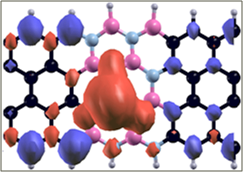Highlights
DFCTI was established in 2011 around a team of IT scientists and computational physicists dedicated to develop a state-of-the-art computer infrastructure for demanding numerical simulations. The department continues the institute's long tradition in advanced computing that started in 1956, when the first Romanian computer (CIFA-1) was built in the premises of the institute.
Infrastructure
DFCTI hosts, develops and administrates one of the most important e-infrastructures in the country, that includes HPC, HTC and cloud computing facilities dedicated to the support of the research community within IFIN-HH and of the large scale international collaborations in which the institute takes part.
R&D topics
- Nonlinear dynamics in Bose-Einstein condensates
- Physical properties of nanosystems
- HPC for applications in nuclear and particle physics
- Molecular dynamics simulations of biomolecules
- High throughput, high performance and cloud computing technology
International collaborations
The DFCTI team participated in numerous international R&D and infrastructure FP6/FP7/H2020 projects on Grid, HPC and Cloud, such as EGEE, SEE-GRID, HP-SEE or EOSC-hub. The staff currently conducts scientific collaborations with:
- Worlwide LHC Computing Grid (WLCG), CERN
- EGI - Advanced Computing for Research
- Joint Institute for Nuclear Research (JINR), Dubna, Russian Federation
- Institute of Physics Belgrade, Serbia
- Skopje University, FYR of Macedonia


